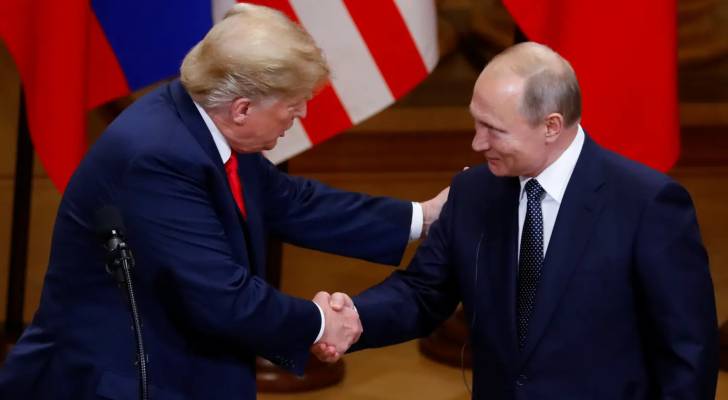Trump considers sanctions on Russia as relations with Putin deteriorate: Report
President Donald Trump is weighing the possibility of new sanctions on Russia this week, amid growing frustration with Russian President Vladimir Putin’s continued escalation of the war in Ukraine and the faltering peace negotiations, according to the Wall Street Journal.
Sources close to Trump said the new measures—if enacted—would likely stop short of targeting Russia’s banking sector, but may include other forms of pressure aimed at securing a cease-fire. A 30-day cease-fire proposal backed by Ukraine has been rejected by Moscow.
“He’s killing a lot of people,” Trump said of Putin on Sunday. “I don’t know what’s wrong with him.”
The remarks come as Trump grows disillusioned with the peace process, a centerpiece of his foreign policy pitch during the campaign. Advisers say he is now considering stepping away from the negotiations altogether if there is no breakthrough soon.
White House Press Secretary Karoline Leavitt told the Journal that “President Trump has been clear he wants to see a negotiated peace deal,” and that “he has also smartly kept all options on the table.”
The shift in tone marks a deterioration in what Trump once described as a uniquely strong personal relationship with Putin. Since returning to office, Trump has repeatedly signaled he could bring a swift end to the war, but Putin has since stepped up attacks. Just hours after Trump’s Sunday comments, Russia launched one of its largest missile and drone barrages on Ukraine to date.
Meanwhile, key allies—including Germany, France, The United Kingdom, and the US—have moved to lift range restrictions on weapons supplied to Ukraine, allowing deeper strikes into Russian territory. The Biden administration had previously opposed such a move.
Even as Trump adopts a more aggressive tone, Trump remains skeptical of Ukrainian President Volodymyr Zelensky and has publicly criticized him, saying he is “doing his Country no favors.” Trump has also resisted pressure from Congress and allies to increase sanctions, believing they could harm US-Russia economic ties.
Still, pressure is mounting in Washington. Senators Lindsey Graham and Richard Blumenthal have introduced bipartisan legislation to slap additional sanctions on Moscow and impose tariffs on countries buying Russian energy.




